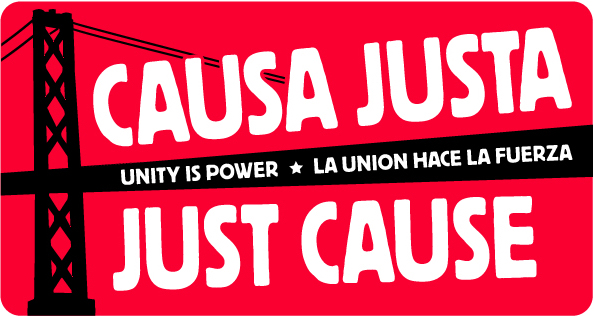Vanessa Moses and Josué Arguelles
Published in SF Gate, Tuesday, May 6, 2014
It’s been 10 years since San Francisco raised its minimum wage to the highest in the country. Today, we find ourselves in a new economy. Yet day laborers, domestic workers and restaurant and retail workers face the same struggles as in 2004. Despite San Francisco’s affluence, workers are falling behind when it comes to affording health care, rent, tuition and basic living expenses, and too many can no longer afford to live here.
With our economy increasingly dominated by real estate and tech sectors, we are now the city with the fastest-growing gap between rich and poor. The current proposal to increase the city’s minimum wage put forward by labor and community groups is one part of a larger solution to address the crisis in our communities of increasing income inequality and rampant displacement.
Some would argue that a move to $15 an hour is too fast or too high, that it would result in businesses closing and workers being laid off. But history proves otherwise.
In the decade since the last increase, we have seen growth in the San Francisco economy and no negative impact on employment, with increases in worker productivity and reduced turnover. This is why a broad coalition, formed of the same communities who worked to raise the minimum wage 10 years ago, have introduced a measure to increase the minimum wage to $15 an hour, phased in over two years for large employers and three years for small and medium employers, alongside efforts to stop real estate speculation, raise labor standards for large corporate employers and support small businesses.
As the minimum-wage debate gains momentum in San Francisco, we find the voices of those most affected missing: workers.
Take Gui Fang, who works three part-time jobs, including elder care and janitorial work. She struggles to pay her rent and other bills, even though she lives in a tiny, one-room SRO with a shared kitchen. “My rent is going up in July. With the cost of living rising, how can people afford to live in San Francisco?” she asks.
Or a man named Raymundo Gutierrez, who works seven days a week at two above-minimum wage jobs, lives in a one-bedroom apartment he shares with three others, and still struggles to make ends meet with rising rent and cost of living. “It’s not just about securing my future, but those of my co-workers and family,” he says.
A move to raise the minimum wage is not only good for the economy, it’s the moral thing to do. It’s about raising the standards for workers and creating a dignified wage. It’s about lifting our parents, students and immigrant workers out of poverty. It’s about aligning with historic laws, such as paid sick days and paid health care, and letting the nation know that San Francisco is not behind, but leading the way in upholding dignity and respect for workers.
San Francisco’s economic success should be measured by how it addresses the needs of the workers who keep the city moving on a daily basis.
From Washington, D.C., to Chicago and Seattle to Oakland, the movement to raise the minimum wage floor is calling. Just as in 2003, workers are taking action in 2014. San Francisco deserves a raise, and low-wage workers are leading the way.
Josué Arguelles is the co-director of Young Workers United/Progressive Workers Alliance. Vanessa Moses is the co-program director of Causa Justa Just Cause/SF Rising Alliance.

